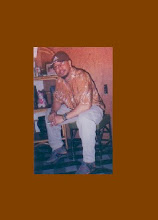
BEIRUT: In some countries in the Arab world homosexuals can face the death penalty. But in Lebanon an association battles openly for the rights of gays who may live freely but are still ostracized socially. "Beirut is a bubble of freedom for homosexuals," said Georges Azzi, coordinator for the Helem (Dream) Association, the Arab world's first gay grouping. "Homosexuals have much more freedom and are more visible than in any other Arab state," he told AFP. "This is undoubtedly because Lebanese society is heterogeneous at all levels - political, religious and cultural - and used to differences," he said about the country's 18 religious communities.Homosexuals are generally stigmatized and penalized across the Arab world, with penalties ranging from death to flagellation and imprisonment. Either banned by law or religion, homosexuality may be punishable by the death penalty in Mauritania, Sudan, Saudi Arabia, Yemen and the United Arab Emirates. But with its trendy gay-friendly bars and nightclubs, Beirut has become a favorite destination for wealthy Arab homosexuals fleeing restrictions at home.
Founded in 2004, Helem collaborates with the ministry of health to fight against the spread of the HIV virus that can cause AIDS and openly lobbies for the legal rights of homosexuals.
Homosexuality is not specifically illegal in Lebanon, but gays can be targeted under article 543 of the penal code which provides for prison terms of up to one year for sexual relations "against nature".
A petition filed by a Beirut city councillor in 2006 seeking prosecution of Helem was rejected by the attorney general's office, which ruled that just because the gay rights group had an office and a website this did not mean it was breaking the law. "In the beginning journalists used to come and see us, like one would go to the zoo," said Azzi. "But today we have become known and respected.
This evolution has also been seen in the language used to refer to gays. "In the Lebanese media we used to be called 'perverts' and 'deviants' but now they just call us 'homosexuals'," Bilal, an official at Helem who did not wish to reveal his family name, told AFP. But if Lebanon seems outwardly more permissive than other Arab countries, homosexuals can still live in shame, fear of scandal and social exclusion.Seen from the outside, Lebanon is a liberal country which respects personal freedoms," Linda Shartouni Zahm, a researcher in social psychology at the Lebanese University, said. "But we are the prisoners of others' views - of the family, religion and an authoritarian patriarchal system," she said. "There are homosexuals who receive death threats from members of their own families, others who are expelled from school or some who have to leave Lebanon," she said.Some homosexuals in the country lead double lives. "Personally I refuse to remain in the closet, but I am an exceptional case," said 37-year-old Jean, criticising "people who are gay on Saturday night, but pretend they are not during the family lunch on Sunday" When he was 19, Jean told his father that he was a homosexual. "His reaction was to tell me: 'OK, get married, have children and live your sexual life in parallel - discreetly'," he said. "He gave me examples of people he knew who lived exactly likethat," Jean said.
Shartouni Zahm explained that "having descendants and children is very important here. And the Lebanese mother always dreams of marrying her daughter off." As for lesbians, they have double the trouble. "Make no mistake - Lebanon is a country of macho and conservative people where women are considered inferior and are discriminated against," said 25-year-old Nadine, a member of Meem association that supports lesbian rights. "The Lebanese want to show the Arab world that they are open-minded. But most youngpeople generally carry the conservative ideas of their parents," she said. "If my parents do not let me go out it is not because I am gay, it's because I'm a woman." - AFP
















